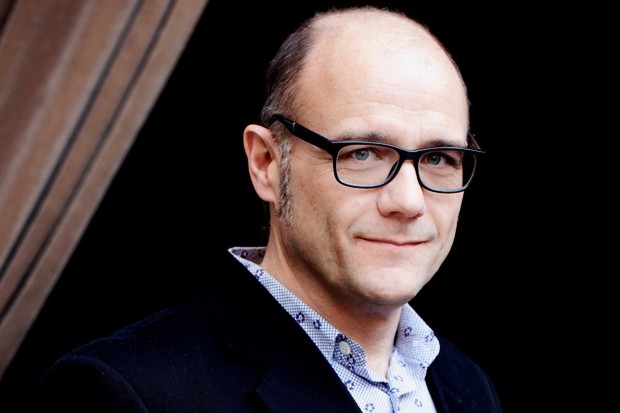Christophe Leparc • Director, Cinemed
"It’s no coincidence that an entirely new generation is emerging"
- Cineuropa sat down with Christophe Leparc, director of the Montpellier Mediterranean Film Festival, the 38th edition of which will run from 21-29 October

Christophe Leparc is the new director of Cinemed, the Montpellier Mediterranean Film Festival, following a brief stint in charge of the event's artistic direction last year. He sat down with Cineuropa to discuss the 38th edition of the event (read the news about its programme), which kicks off today.
Cineuropa: How is your first Mediterranean Film Festival as director shaping up?
Christophe Leparc: In 2015, my stint as artistic director allowed me to lay some of the groundwork. The structure of the festival, made up of retrospectives, competitions and tributes, in terms of its programming and editorial policy, won’t be changing. But, and this is what we started doing last year, we want to focus a lot more on the friendly atmosphere, the festivities, the conversations between the directors who have been invited to the festival and the audiences, and to allow as many of Montpellier’s inhabitants to join in. To do that, we’re working with all the different cinemas in the city and a number of different associations. The other thing that stands out about our programming is that the only constraint is a geographical one – the Mediterranean. But that’s fantastic, because in focusing on the Mediterranean region, we have the scope to cater to a wide range of film tastes; we’re not confined to one school of film or one single genre. Personally, I enjoy a wide range of different film genres, from horror films, to some rather specialised documentaries, and this year, for example, we’ll be dedicating a screening to the emerging generation of young filmmakers who are taking over Tunisia’s cinematic landscape. In general, it’s about showing the vibrancy and energy of today’s Mediterranean cinema, but also about looking back on its history, in particular through a number of retrospectives, because we are in an incredibly rich geographical area. For example, Mauro Bolognini’s films all stand out. It’s all part of what makes us love cinema. That’s the general idea, anyway: openness, eclecticism and the possibility for everyone to find films that they really enjoy.
Film industries from across a number of Mediterranean countries that were previously rather restricted seem to be on the rise. Is that how you see it too?
In some countries, that is certainly the case, like in Algeria, where most of the buzz seems be around short films. But in Tunisia’s case, a country that has had a great deal of success at some of the big international festivals recently (As I Open My Eyes [+see also:
film review
trailer
interview: Leyla Bouzid
film profile]at Venice and Hedi [+see also:
film review
trailer
film profile]at Berlin), it’s no coincidence that an entirely new generation is emerging. This is because there has been a lot of work over this last ten years or so to get young filmmakers with film projects in contact with co-producers from the north of the Mediterranean: France, Germany, etc. And the World Cinema Support Programme that the CNC set up in France is making things easier. Before this, it wasn’t talent that was lacking, but the refinement of that talent. In Egypt or in Lebanon, it’s completely different, because you can count the number of producers doing the lion’s share of the work on one hand. You really need to search for quality producers in the Mediterranean, and the good ones can’t produce it all! It’s not easy to find good producers in the Mediterranean, and those that you can find, can’t produce everything!
In the ex-Yugoslav nations, from which we’ve seen a real surge in film production, countries like Kosovo and Montenegro, there are all these different systems being set up all over the place, and there are others that are just starting to bear fruit – there’s a real yearning for artists and cinematic expression.
And what about funding? Is co-production essential?
It depends. There are a number of films that don’t need anyone else to get made. In Morocco, for example, we’ve seen an influx of independent productions, with no co-production agreements with France in place. In Lebanon, it seems to be the same. But, often, projects end up being edited as part of a co-production. What is essential – and this is what we are trying to promote through our development support grants – that these filmmakers be able to meet producers, and that they accept critiques of their projects in order to work on them, to refine them. Letting yourself get upset by what happens in funding can be a real danger, because if you start filming with an under-prepared script, you may have some interesting points here and there, but, as a whole, it won’t turn out well. There was a certain period when Italian production was like this, you could have even said that about well-funded films. Yet, when you look at the example of Fiore [+see also:
film review
trailer
Q&A: Claudio Giovannesi
film profile] by Claudio Giovannesi, which we’re presenting in competition this year, you can clearly see the constructive relationship between the director and his/her production team.
(Translated from French)
Did you enjoy reading this article? Please subscribe to our newsletter to receive more stories like this directly in your inbox.















